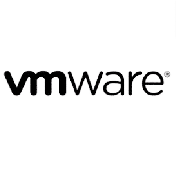Seminarinhalt
After you successfully complete this course, expect to be able to:
- Perform C Programming within the Guardian system procedures
- Understand the unique aspects of the C run-time environment such as memory model issues, diagnostics, special debugging issues, and the retrieval of specific run-time and environment information
Programm
• Basic operation of the TNS C compiler
• Compiler syntax and the analysis of a compiler listing
• Binder commands needed to combine multiple object files to build a single executable program
• Lab Exercise: Compile a complete C program
• Lab Exercise: Separate compilation and binding
Native Mode Considerations
• Native mode
• Benefits and constraints of native mode and the native mode development tolls
• Process attributes and organization
Native Mode Compilation
• Various native mode migration issues particular to C programming
• Using the TNS/E native compiler (CCOMP)
• Usage of the eld utility for linking separately compiled modules
• Lab Exercise: Use the CCOMP compiler to build runnable programs from separately compiled units
Run-time Environment
• NonStop server run-time environment for C programs
• Obtaining and processing environment and startup protocol messages
• Essentials of memory models available for NonStop C and show the four basic areas of heap, RTL, global and stack
• 32 bit pointers and access to system procedures that require 16 bits
• Large and wide memory models
• Lab Exercise: Gain hands-on experience in fetching process startup information
Tandem C Compiler Operation and Diagnostics
• Subset of the available compiler pragmas for Tandem C
• Compiler pragmas for the native C compiler
• Compile-time and run-time diagnostic facilities
• Demonstrating, with examples, various aspects of compiler operations
Debugging C Programs
• Basic framework of Inspect and Native Inspect commands which can be used for debugging NonStop server C programs
• Information regarding Inspect and Native Inspect commands specifically helpful for the NonStop server C environment
• Demonstrating a debugging session
• Lab Exercise: Use Inspect and Native Inspect on a C program
Interfacing to Guardian Procedures
• Specifics of interfacing to Guardian procedures from a C program
• Interface declarations for non-C functions
• Usage of the Guardian procedure calls reference manual and special/problem Guardian procedures
• Lab Exercise: Make calls to Guardian procedures needed for various terminal display options
Mixed-Language Programming
• Mixed language programming as it relates to NonStop C
• Interface declarations, common run-time environment (CRE), specific alignment rules, data storage requirements, and global data sharing
• Lab Exercise: Gain hands-on experience with interface between NonStop C and other languages such as TAL Onsite-delivery equipment requirements:
• One NonStop server with NonStop operating system, version H06 or later
• 6530 terminals or equivalent PC/workstation for instructor demonstrations
• 6530 terminal or equivalent PC/workstation per student
• C, NMC, nld, noft, TAL and pTAL software
• Printer for compilation listings
Zielgruppen
- System analysts
- System programmers
- •Programmers
- Programmer analysts
Vorkenntnisse
- Concepts and Facilities for HPE NonStop Systems (U4147S)
- ANSI/ISO C Programming experience
- Recommended: Experience with the Inspect or Native Inspect symbolic debugger
- Recommended: TAL programming experience



